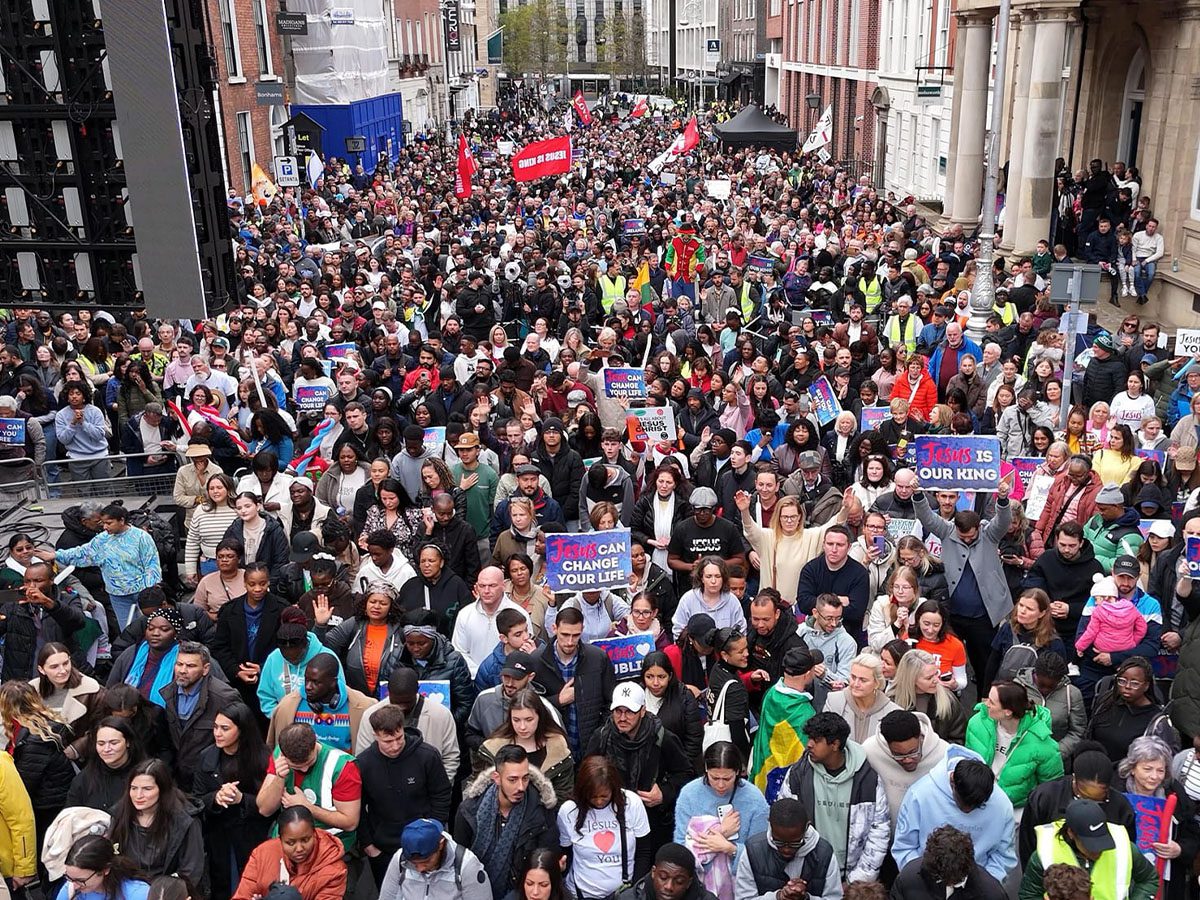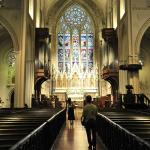
Event organizers are celebrating an “historic” turnout of the first-ever “March for Jesus” held in Dublin, Ireland. Event organizers estimated that around 12,000 people attended the event, which brought marchers from the Garden of Remembrance to Dáil Éireann. Participants in the event sang worship songs and held up signs such as “Jesus can change your life.”
One of the organizers, Pastor John Ahern from All Nations Church Dublin told Premier Christian News that the event was “unprecedented.” “I think it’s [also] an indication of the hunger that exists in our generation for reality, for God, for something beyond this superficial, ‘woke’ culture that’s been rammed down everyone’s throats through so many arenas,” he said. “There’s no substance, meaning, or happiness to be found in those ideologies or ideas, and I think many of them have actually reached their legitimate end. I truly believe we’re going to see a turning back to God, to truth, and to objective reality. I also believe we’re in the early days of revival and awakening, because, as Jesus said, ‘Man does not live by bread alone’.”
During the event, Ahern preached against the growing secularism that has pervaded Ireland and the rest of Europe. To date, the number of Irish that identified as Catholic was nearly 95 percent in 1961. In 2022, that number had dropped to 69 percent. Church attendance also dropped off, with 80 percent regularly attending services in the 1990s. By 2022, that number had plummeted to 28 percent. “We are here to bless our city, we are here to bless this island both north and south,” said Ahern. But we’re not just here to bless because God will not and cannot bless everything. God will not bless the shedding of innocent blood. God will not bless euthanasia. God will not bless the sexualization of children. God will not bless the erasure of women. And God will not bless churches that are so cowardly they refuse to call evil exactly what it is.” It is the first time the march has been held in Dublin, though its history goes as far back as 1987 when it started in London.
The event was a mix of denominations, with Catholics and Protestants participating together, an important mix given the country’s contentious history between the two. Northern Ireland is mainly Protestant, whereas the rest of the country is mainly Catholic, which has been a source of tension between the two sides. Ahern, however, hopes the march will change that. “I think people truly want to move on from that, and I’ve certainly seen a lot of healing between North and South and, more broadly, between Great Britain and Ireland,” he said. “At the end of the day, we’re closest neighbors, with a shared history, whether we like it or not. Not all of it may be good, but a lot of it is. I think we need to look at things more redemptively and recognize, as I said, that there’s more that unites us than divides us.”


